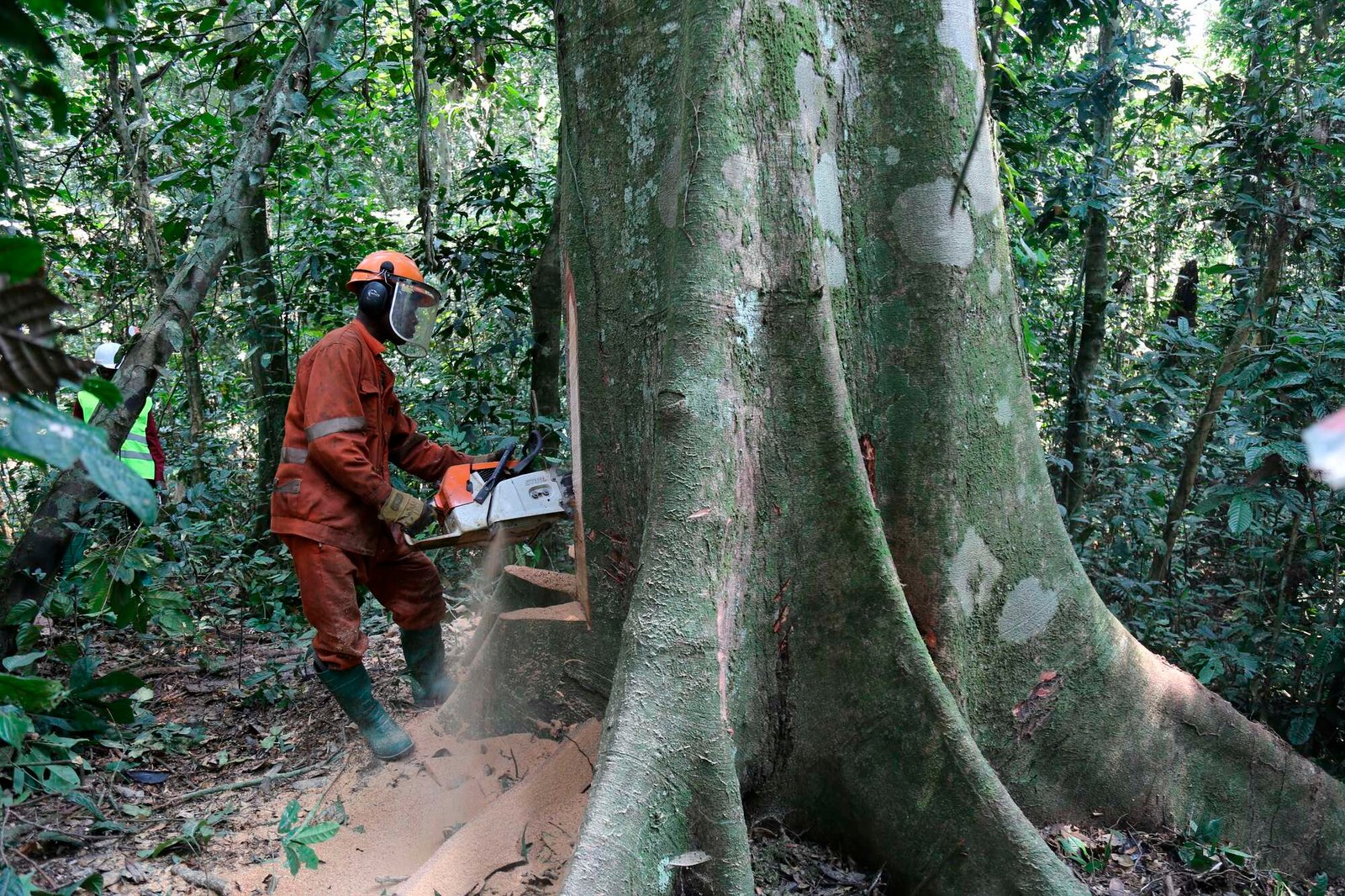[ad_1]

Though the Congo Basin is the second-largest tropical forest and river network on earth, spanning a massive 3.68 million square kilometres, little has been invested in understanding it – unlike what has been done on the Amazon Forest in South America – as numerous barriers also impede high-level research.
In recent years, only 11 percent of international funding for forest protection has been channeled to projects in the Congo Basin, while the Amazon received 34 percent and Southeast Asia received 55 percent of the funding.
The lack of investment meant that in the latest global climate assessment by the Intergovernmental Panel on Climate Change, the Congo Basin was one of only two locations in the world without sufficient data to assess past trends in extreme heatwaves.
Read: Congo Basin integral in climate sustainability
Now researchers have launched the Congo Basin Science Initiative (CBSI) targeted at the Central African ecosystems.
“Whether it is uncovering new values for the Congo Basin’s ecosystems, or discovering new vulnerabilities, science is needed to explain these to the world in order to make wise political choices,” said Prof Stephen Lewis, an expert on the Congo forests from the University of Leeds and University College London, at the Three Basins Summit in Brazzaville, Congo, on October 28.
“Central Africa needs advocate for evidence-based policy, so that these countries can develop and become prosperous, but without the mass-scale destruction of nature that has occurred in places like the UK,” he added.
The meeting in Brazzaville is calling for $100 million to be invested in a 10-year programme focused on the Basin, with a further $100 million to give PhD training to scientists from the Congo region, to lead and co-ordinate complex studies here.
There will follow extensive measurements of climate, vegetation, rivers, biodiversity, and land use to comprehend the interconnected climate-forest-water-society systems, with the aim of identifying and avoiding future risks.
Read: Strengthening Africa’s food systems for greater nutrition
This data will be collected through the Congo Basin climate, vegetation, hydrology, biodiversity, land cover, and socio-economic observatories, which collectively form the ‘Congo Basin Regional Observatory.’
The Congo basin encompasses parts of the DRC, the Republic of the Congo, Cameroon, the Central African Republic, Rwanda, Burundi, Uganda, South Sudan, Tanzania, Zambia, Equatorial Guinea, Gabon, Nigeria and Angola.
These forests consist of closed canopy tropical forests but also boast diverse ecosystems, comprising the world’s largest tropical peat swamp forest complex.
Approximately 80 million people heavily rely on the Congo Basin ecosystems for their livelihoods. Around 900,000 central African hunter-gatherers reside within the area.
On a global scale, the Congo Basin plays a critical role in regulating the climate system. It is estimated that African tropical forests within the basin absorb 1.5 billion tonnes of carbon dioxide annually, which is equivalent to 4percent of the world’s fossil fuel emissions.
The Congo Basin is believed to be home to around one million species – the earth has approximately 8.7 million species. More than half of these species reside in tropical forests, and about one-quarter of those forests can be found in the Congo Basin.
Ongoing research in the Congo Basin continues to yield significant discoveries. For example, the world’s largest tropical peatland was recently mapped, and new species previously unknown to science, such as a gecko, an air-breathing catfish, and a coffee species, have been identified.
Read: Saving River Congo from drying up
The meeting in Brazzaville is calling for $100 million to be invested in a ten-year science programme focused on the Basin, with a further $100 million to give PhD training to scientists from the Congo region, to lead and co-ordinate complex studies here.
There will follow extensive measurements of climate, vegetation, rivers, biodiversity, and land use to comprehend the interconnected climate-forest-water-society systems, with the aim of identifying and avoiding future risks. This crucial information will enable informed decision-making at local, national, regional, and international levels.
This data will be collected through the Congo Basin climate, vegetation, hydrology, biodiversity, land cover, and socio-economic observatories, which collectively form the ‘Congo Basin Regional Observatory’.
Amazon study
The Amazon has been the subject of intensive scientific inquiry through the Large-Scale Biosphere-Atmosphere Experiment, commonly known as LBA. This decade-long project, involving 120 initiatives and 1,700 researchers, has revealed the pivotal role played by the Amazon rainforest in regulating the earth’s climate. Furthermore, it has seen local scientists trained and positioned Brazil at the forefront of rainforest science.
The researchers meeting in Brazzaville aim to replicate that approach with the creation of the Congo Basin Science Initiative.
“If we can replicate what has been achieved through investing in research in the Amazon, we will be in a much stronger position to understand the threats to this unique African ecosystem not only from climate change but also from deforestation and pollution from mining and oil exploration,” said Prof Raphael Tshimanga, a leading expert on the Congo Basin based at the University of Kinshasa.
[ad_2]
Source link



